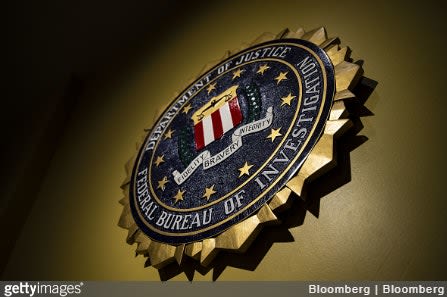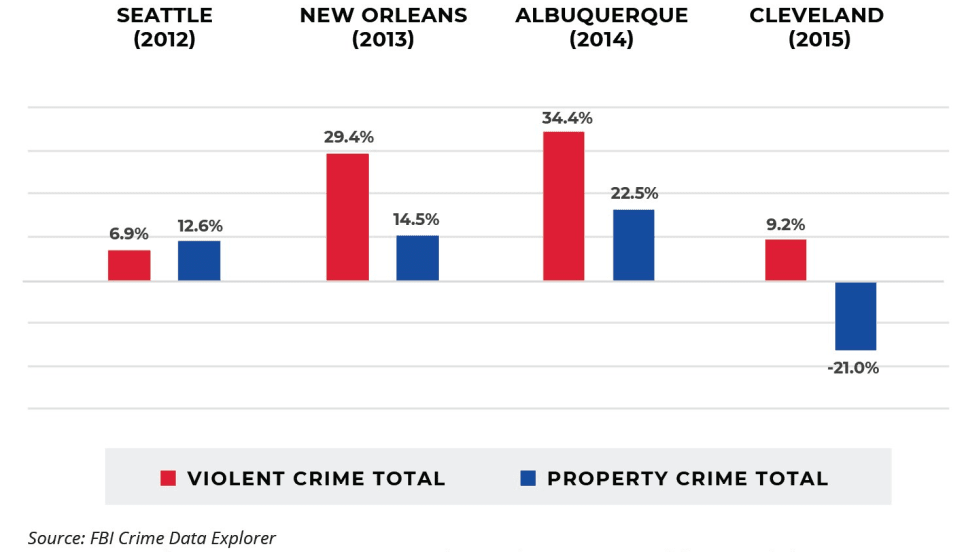The FBI on Wednesday announced that the official launch of the National Use-of-Force Data Collection will take place on January 1, 2019.
FBI Announces Launch of National Use-Of-Force Data Collection
The FBI says that the goal of the collection is not to provide insight into specific use-of-force incidents, but instead to offer a comprehensive view of the circumstances, subjects, and officers involved in such incidents nationwide.

At the request of major law enforcement organizations, the FBI established the National Use-of-Force Data Collection in an effort to promote more informed conversations regarding law enforcement use of force in the United States.
The FBI says that the goal of the collection is not to provide insight into specific use-of-force incidents, but instead to offer a comprehensive view of the circumstances, subjects, and officers involved in such incidents nationwide.
"Law enforcement officers across the country face complex and dangerous policing environments that may result in the use of force," the FBI said in a statement. "To date, there has been no mechanism for collecting nationwide statistics related to use-of-force incidents. While some law enforcement agencies and states have proactively developed their own use-of-force data collections for use at both the local and state level, there has yet to be a consistent, aggregated view of such data from a national perspective."
The FBI is now asking law enforcement agencies to contribute their own data to the National Use-of-Force Collection via a web application in the FBI’s Law Enforcement Enterprise Portal (LEEP), which allows agencies to report incidents electronically, either individually or by bulk submission.
As with all UCR Program data collections, participation is voluntary.
More Procedures & Policies

Trump Issues Executive Order He Says Will Help Police Fight Crime
“My Administration is steadfastly committed to empowering State and local law enforcement to firmly police dangerous criminal behavior and protect innocent citizens,” Trump said.
Read More →
NYPD Restricts Vehicle Pursuits to Suspects Wanted for Serious Crimes
The revamped policy, which takes effect Feb. 1, bars police from pursuing suspects for traffic infractions, violations or non-violent misdemeanors, police Commissioner Jessica Tisch said.
Read More →
NYPD Going “Old School” with Uniform, Facial Hair Policy
“It’s absolutely ludicrous that you have an officer with pink hair and nails longer than their fingers,” one Manhattan officer said. “We’re a police department not a hip hop department. Let’s go back to being police officers.”
Read More →
AZ POST Considers Revision to Marijuana Rules for Recruits
“My recommendation for your consideration is we go for a six-month window,” said Matt Giordano, executive director. “We would go to six months of the last use.
Read More →
Time to Change Our Pursuit Policies
Complicated guidelines that require officers to make decisions during the heat of the moment are not working.
Read More →
Baltimore Police Complying with Key Consent Decree Requirements, DOJ Says
If the court grants the motion, BPD must maintain compliance with the provisions for one year before the court can terminate these sections of the consent decree.
Read More →
Study Finds Consent Decrees Onerous, Ineffective, and Often Harmful
The report concludes: “When a consent decree is truly warranted, it must focus on the most urgent concerns. The violations should be clearly identified and fully supported by rigorous evidence."
Read More →
DOJ and Consent Decree Monitor Praise Albuquerque PD for Reforms
Monitors tracking civilian oversight, one of the largest remaining roadblocks in reaching full compliance, called it “a mess” that was being cleaned up, and advocates applauded the work done by the department to come so far, so fast.
Read More →
Portland Loosens Restrictions on Vehicle Pursuits
“We have seen a significant propensity for criminal suspects to elude traffic stops, often driving extremely dangerously despite no officers chasing them,” the Bureau said in a statement.
Read More →
New Seattle Policy to Limit Police Use of Ruses
The new ruse rules seek to set clear standards on how SPD officers can use the tactics going forward, and limits use to five scenarios.
Read More →
